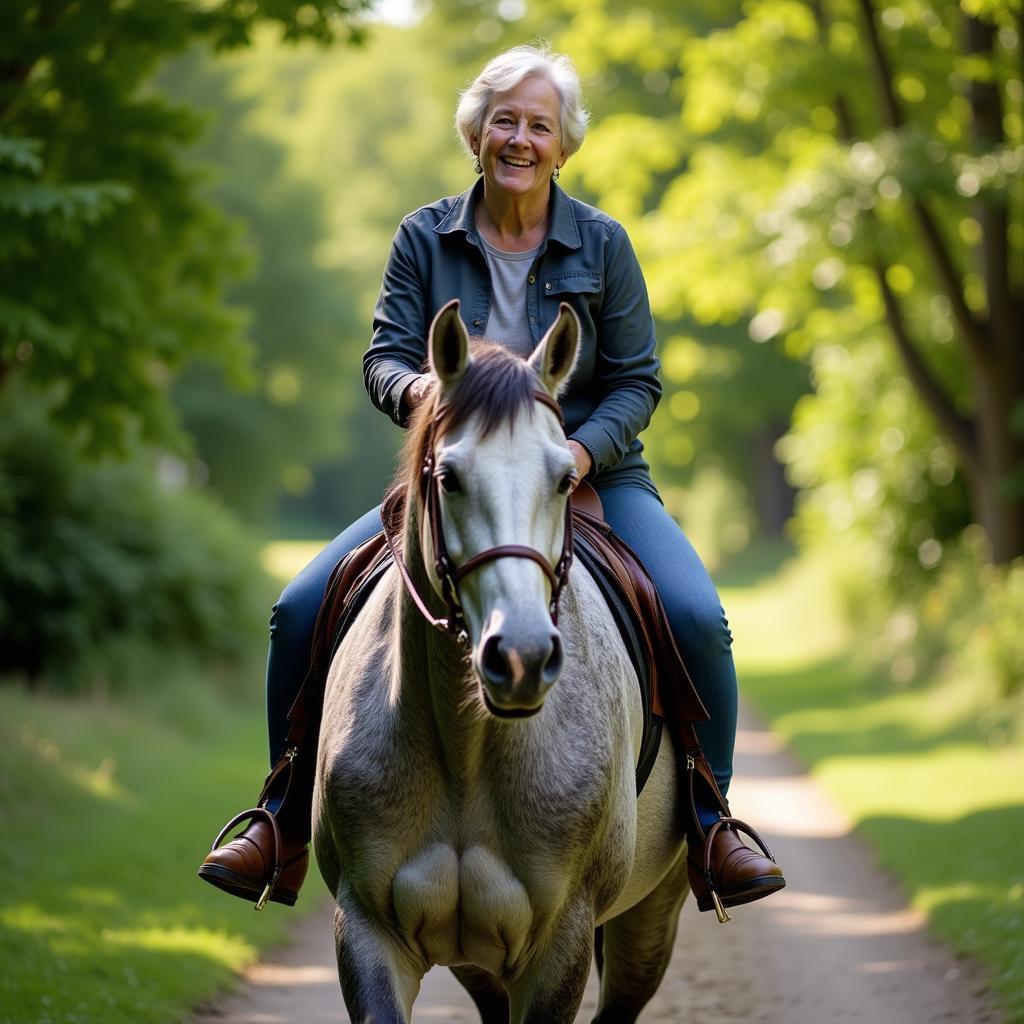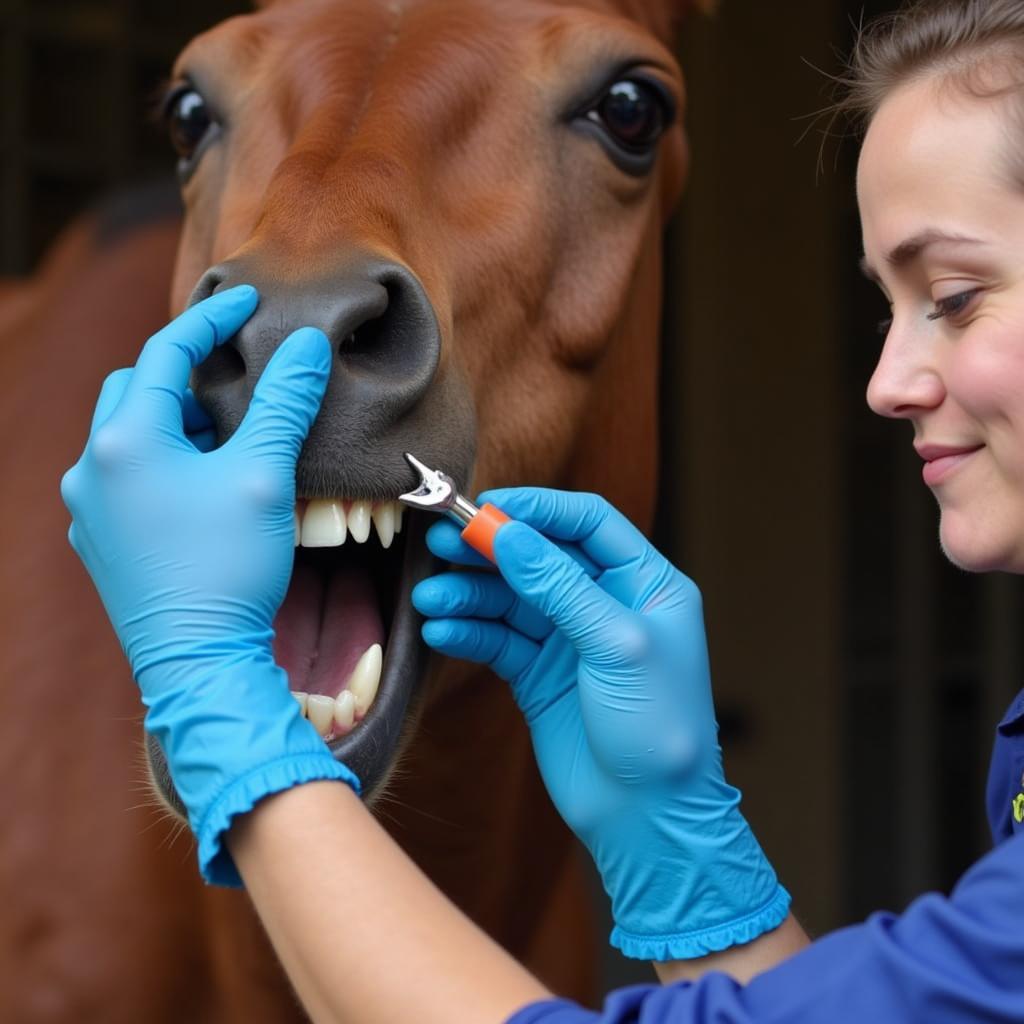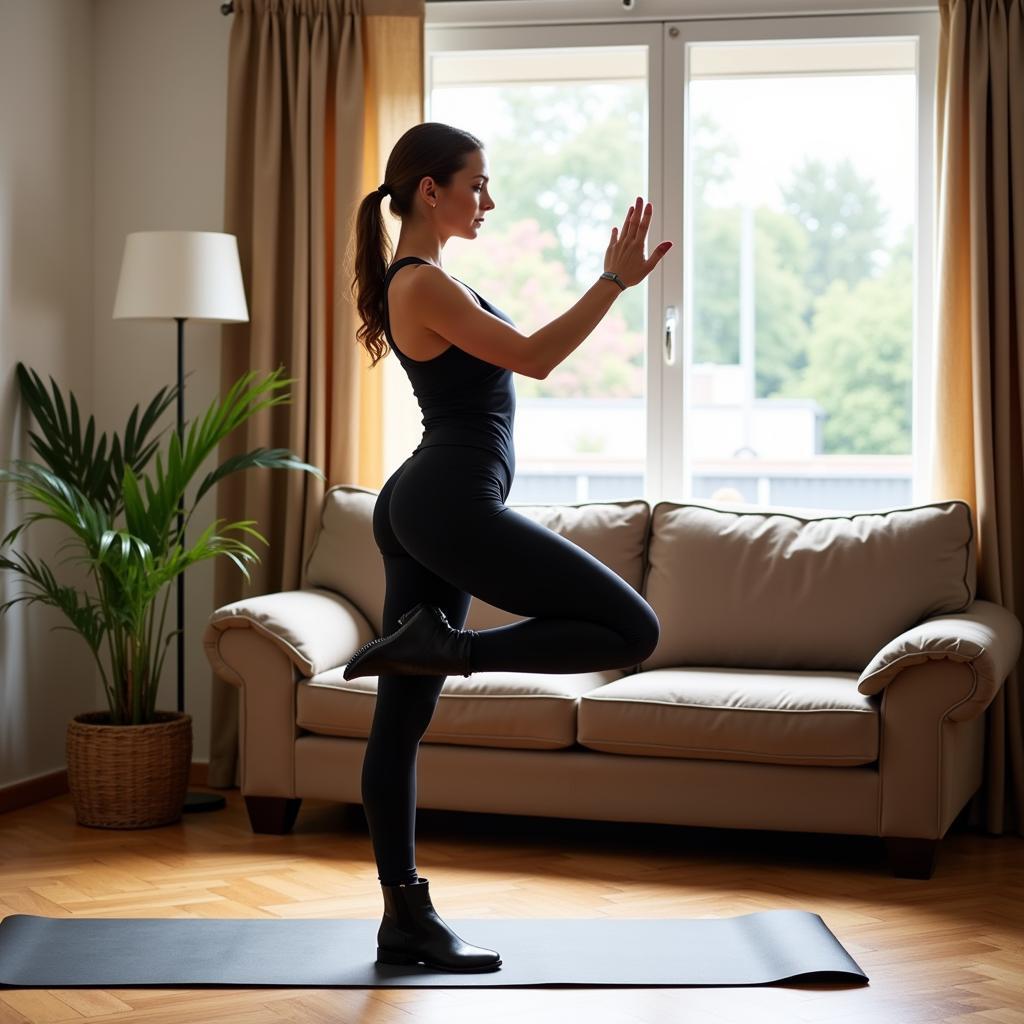“Outlasting” your horse is a bittersweet thought for any equestrian. While we wish our equine partners could live forever, understanding the factors influencing their lifespan and our own longevity can help us maximize the time we have together. This guide delves into the multifaceted aspects of horse and human longevity, empowering you with knowledge and practical tips to cherish every ride for years to come.
 Senior horse and rider enjoying a trail ride
Senior horse and rider enjoying a trail ride
Understanding Horse Lifespan: A Symphony of Genetics and Care
Like humans, horses have an average lifespan influenced by various factors, with genetics playing a crucial role.
- Breed Predispositions: Certain breeds, like ponies, tend to live longer than larger breeds. This doesn’t mean your Warmblood won’t reach a ripe old age, but it highlights the genetic component of longevity.
- Early Life Care: Just as a healthy childhood impacts human development, a foal’s early years significantly shape its future health. Proper nutrition, a safe environment, and early disease prevention can add years to your horse’s life.
 Veterinarian checking a horse's teeth
Veterinarian checking a horse's teeth
Extending the Ride: Management Practices that Matter
Beyond genetics, numerous management practices can significantly impact your horse’s lifespan. Here are key areas to focus on:
- Nutrition: Just like humans, horses thrive on a balanced diet. High-quality hay, balanced concentrates, and access to fresh water are fundamental. Consult an equine nutritionist to tailor a feeding plan to your horse’s specific needs, considering age, breed, and activity level.
- Dental Care: Dental issues can lead to pain, difficulty eating, and even colic. Regular dental checkups and floating by an equine dentist are crucial to ensure your horse can comfortably consume food and maintain optimal health.
- Exercise and Mental Stimulation: A sedentary life isn’t natural for horses. Regular exercise, tailored to your horse’s age and fitness level, is vital for maintaining muscle mass, joint health, and mental well-being.
- Hoof Care: No hoof, no horse, as the saying goes. Regular farrier visits for trimming and shoeing are non-negotiable. Properly balanced hooves prevent lameness and ensure your horse can move comfortably throughout its life.
- Parasite Control: Internal parasites can wreak havoc on a horse’s health. Implement a strategic deworming program in consultation with your veterinarian to keep these unwelcome guests at bay.
Nurturing Your Own Longevity: A Shared Journey of Well-being
Riding is a physically and mentally demanding sport. To “outlast” your horse in the saddle, prioritize your own health and well-being:
- Fitness and Flexibility: Regular exercise focusing on core strength, balance, and flexibility is essential for staying riding fit and preventing injuries.
- Nutrition and Hydration: Fuel your body with a balanced diet rich in fruits, vegetables, and lean protein. Stay hydrated, especially when riding, to maintain energy levels and focus.
- Injury Prevention: Warm up properly before riding, use appropriate safety gear, and know your limits. Listen to your body and don’t push through pain, as this can lead to long-term injuries.
 A woman practicing yoga in her riding attire
A woman practicing yoga in her riding attire
The Human-Horse Bond: A Lifelong Connection
Beyond the practical aspects, the emotional bond you share with your horse is invaluable.
“A horse doesn’t care how much you know until they know how much you care.” – Pat Parelli
This quote beautifully captures the essence of the horse-human relationship. Spending quality time with your horse, building trust, and understanding their language strengthens this bond and enriches both your lives.
FAQs: Outlasting Your Horse
1. What is the average lifespan of a horse?
The average lifespan of a horse is 25-30 years. However, with proper care, many horses live well into their 30s, and some even reach their 40s.
2. What are some early signs of aging in horses?
Common signs include a greying muzzle, changes in muscle tone, stiffness, and decreased energy levels.
3. How can I keep my senior horse comfortable?
Provide senior horses with soft bedding, easy access to food and water, and adjust their exercise routine to accommodate their changing needs.
Cherishing Every Ride: A Legacy of Love
Outlasting your horse isn’t about winning a race against time but about maximizing the quality of life for both of you. By understanding the factors influencing equine and human longevity, implementing preventative care, and nurturing the unique bond you share, you can make every ride a testament to the enduring spirit of the horse and the profound connection between horse and rider.
For personalized advice on horse care or any questions regarding your equine partner’s well-being, don’t hesitate to reach out. Contact us at Phone Number: 0772127271, Email: [email protected] Or visit us at: QGM2+WX2, Vị Trung, Vị Thuỷ, Hậu Giang, Việt Nam. We have a dedicated team available 24/7 to assist you.